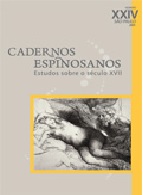Individual death and collective life in Spinoza
DOI:
https://doi.org/10.11606/issn.2447-9012.espinosa.2010.89417Keywords:
Death, Conatus, Individual, Collectivity, SpinozaAbstract
This article discusses three basic questions. Firstly, we ask: Why would freedom of thought and expression be a necessary condition for social peace? Spinoza’s answers will assist us in understanding the serious political mistake of condemning those who confront the established regime to exile, prison or death. Among the rare cases of individuals who reaffirm their honesty when this attitude implies a risk of death, we will select Socrates’. The alleged words of this legendary philosopher will lead us to a second discussion: Can reason determine one to act honestly even when that implies one’s own death? Would not reason thus oppose conatus? Finally, from considerations about the bonds between individuality and collectivity, ethics and politics, the last question will emerge: How are love of self, love of others and love of Nature related?Downloads
Download data is not yet available.
Downloads
Published
2010-12-15
Issue
Section
Artigos
License
Autores que publicam nesta revista concordam com os seguintes termos:
- Autores mantém os direitos autorais e concedem à revista o direito de primeira publicação, com o trabalho simultaneamente licenciado sob a Licença Creative Commons Attribution que permite o compartilhamento do trabalho com reconhecimento da autoria e publicação inicial nesta revista.
- Autores têm autorização para assumir contratos adicionais separadamente, para distribuição não-exclusiva da versão do trabalho publicada nesta revista (ex.: publicar em repositório institucional ou como capítulo de livro), com reconhecimento de autoria e publicação inicial nesta revista.
Authors who publish in this journal agree to the following terms:
a. Authors retain copyright and grant the journal the right of first publication with the work simultaneously licensed under the Creative Commons Attribution License that allows to share the work with an acknowledgment of its authorship and initial publication in this journal.
b. Authors are authorized to take on additional contracts separately, to non-exclusive distribution of the article published in this journal (ex.: to publish in institutional repository or as part of a book), with an acknowledgment of its initial publication in this journal.
How to Cite
Merçon, J. (2010). Individual death and collective life in Spinoza. Cadernos Espinosanos, 24, 35-60. https://doi.org/10.11606/issn.2447-9012.espinosa.2010.89417


